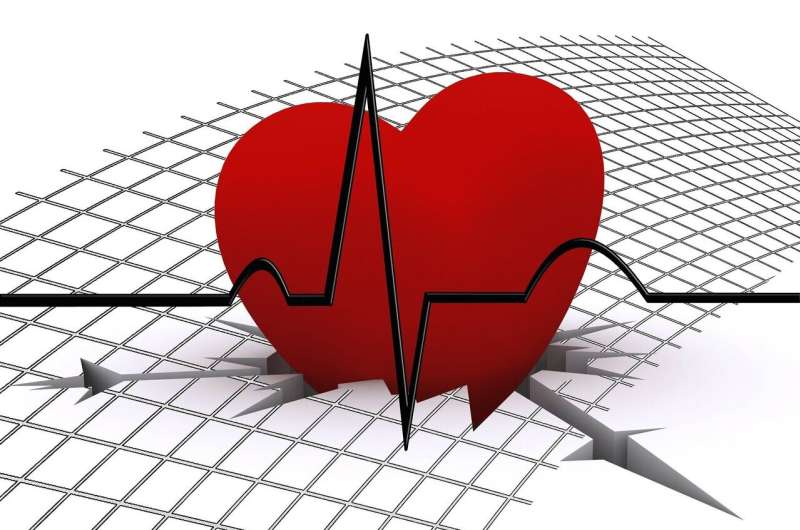What should I eat to avoid heart disease?

Plant-based foods should dominate heart healthy diets, according to a paper published today in Cardiovascular Research, a journal of the European Society of Cardiology (ESC). This comprehensive review of research on food and heart disease provides updated evidence on how much, and how often, each item can be safely consumed.
"There is no indication that any food is poison in terms of cardiovascular risk. It's a matter of quantity and frequency of consumption," said study author Professor Gabriele Riccardi of the University of Naples Federico II, Italy. "A mistake we made in the past was to consider one dietary component the enemy and the only thing we had to change. Instead, we need to look at diets as a whole and if we reduce the amount of one food, it is important to choose a healthy replacement."
Overall, there is consistent evidence that for healthy adults, low consumption of salt and foods of animal origin, and increased intake of plant-based foods—including whole grains, fruits, vegetables, legumes and nuts—are linked with reduced risk of atherosclerosis. The same applies to replacing butter and other animal fats with non-tropical vegetable fats such as olive oil.
New evidence differentiates processed and red meat—both associated with increased risk of cardiovascular disease—from poultry, which shows no relationship at moderate intakes (up to three servings of 100 g per week). Red meat (i.e. beef, pork, lamb) should be limited to two servings of 100 g per week, and processed meat (i.e. bacon, sausages, salami) limited to occasional use.
Legumes (up to four servings of 180 g per week) are the recommended protein replacement for red meat. Moderate fish consumption (two to four servings of 150 g per week) is also supported by the latest evidence for prevention of heart disease, although there might be sustainability concerns. Poultry may be a suitable protein alternative to red meat, but in moderate amounts.
As for fruits and vegetables, given their strong association with a lower risk of atherosclerosis, daily consumption should be increased to as much as 400 g for each. Regarding nuts, a handful (around 30 g) per day is recommended.
For the healthy population, recent evidence does not support a requirement to use low-fat, instead of full-fat, dairy products to prevent heart disease. Rather, both full-fat and low-fat dairy products, in moderate amounts and in the context of a balanced diet, are not associated with increased risk.
"Small quantities of cheese (three servings of 50 g per week) and regular yogurt consumption (200 g per day) are even linked with a protective effect due to the fact that they are fermented," said Professor Riccardi. "We now understand that gut bacteria play a major role in influencing cardiovascular risk. Fermented dairy products contain good bacteria which promote health."
With respect to cereals, novel advice is given according to the glycaemic index (GI), where high GI foods raise blood sugar more quickly than low GI foods. High GI foods (i.e. white bread, white rice) are associated with an elevated atherosclerosis risk; therefore, consumption should be limited to two servings per week and they should otherwise be replaced with whole grain foods (i.e. bread, rice, oat, barley) and low GI foods (i.e. pasta, parboiled rice, corn tortilla).
As for beverages, coffee and tea (up to three cups daily) are associated with reduced cardiovascular risk. Soft drinks, including low-calorie options, are linked with higher risk and should be replaced with water except on limited occasions. Moderate alcohol consumption (wine: up to two glasses per day in men and one glass in women; or one can of beer) is associated with a lower risk of heart disease compared to higher amounts or abstinence. But Professor Riccardi said: "Considering the overall impact of alcohol on health, this evidence should be interpreted as the maximal allowed intake rather than a recommended amount."
Regarding chocolate, the available evidence allows up to 10 g of dark chocolate per day. The authors state that "for this amount of consumption the beneficial effects exceed the risk of weight gain and its related harmful consequences on cardiovascular health".
Professor Riccardi noted that eating should be enjoyable to motivate healthy people to make long-term changes. He said: "We need to rediscover culinary traditions such as the Mediterranean diet which has delicious recipes using beans, whole grains, nuts, fruits and vegetables."
The authors concluded: "A strategy based exclusively on guidelines and nutritional education will not be sufficient to change the lifestyle of the population; policy options to be considered should necessarily include initiatives to facilitate production, marketing, availability and affordability of foods that are not only healthy but also gastronomically appealing."
More information: Gabriele Riccardi et al, Dietary recommendations for prevention of atherosclerosis, Cardiovascular Research (2021). DOI: 10.1093/cvr/cvab173





















